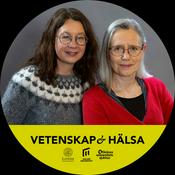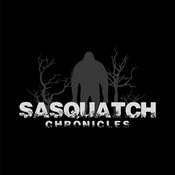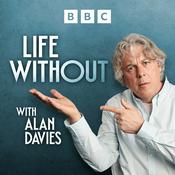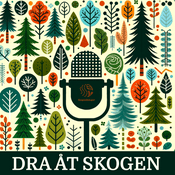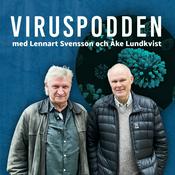1834 avsnitt
- Coral Reef Recovery is happening faster than many scientists once believed possible, but only under the right conditions. Long-term monitoring from the Caribbean and Indo Pacific shows that reefs can regain coral cover and rebuild three-dimensional structure when fishing pressure is reduced, water quality improves, and protections are enforced. The idea that reefs are doomed after bleaching events is being challenged by real data collected over decades.
Reef Resilience Science reveals that recovery is not random. Areas with healthy herbivore populations, strong marine protected area enforcement, and fewer back to back heat stress events show measurable rebounds in coral recruitment and structural complexity. Studies published in Science and Nature Climate Change highlight that while climate change raises the baseline risk, local management decisions strongly influence whether reefs collapse or rebuild.
Ocean Conservation Strategy becomes clearer when recovery case studies are compared to areas still declining. Flattening reefs are not inevitable; they are often the result of cumulative stress. When that stress is reduced, ecosystems respond. The evidence points to a simple but powerful conclusion: give reefs breathing room, and many of them fight their way back.
Listen to the full episode.
Support Independent Podcasts: https://www.speakupforblue.com/patreon
Help fund a new seagrass podcast: https://www.speakupforblue.com/seagrass
Join the Undertow: https://www.speakupforblue.com/jointheundertow
Connect with Speak Up For Blue
Website: https://bit.ly/3fOF3Wf
Instagram: https://bit.ly/3rIaJSG
TikTok: https://www.tiktok.com/@speakupforblue
Twitter: https://bit.ly/3rHZxpc
YouTube: www.speakupforblue.com/youtube - Coral reefs can still show living coral cover and yet be ecologically collapsing beneath the surface. In this episode, we break down new coast-to-coast reef assessments from Thailand that reveal a critical warning sign: reefs are losing structural complexity even when coral is still present.
Structural complexity, also known as rugosity, is what gives reefs their three-dimensional shape. That shape creates habitat for fish, supports predator-prey balance, fuels biodiversity, and protects coastlines from storms. New research published in Science and Nature Climate Change shows that repeated bleaching events and chronic stress are flattening reef architecture, reducing resilience and weakening ecosystem function long before coral disappears completely.
This episode explains why coral cover alone is no longer enough to measure reef health, what structural degradation means for fisheries and coastal communities, and how monitoring needs to evolve if we want real conservation progress.
Follow the show for clear, science-based ocean updates every weekday.
Support Independent Podcasts: https://www.speakupforblue.com/patreon
Help fund a new seagrass podcast: https://www.speakupforblue.com/seagrass
Join the Undertow: https://www.speakupforblue.com/jointheundertow
Connect with Speak Up For Blue
Website: https://bit.ly/3fOF3Wf
Instagram: https://bit.ly/3rIaJSG
TikTok: https://www.tiktok.com/@speakupforblue
Twitter: https://bit.ly/3rHZxpc
YouTube: www.speakupforblue.com/youtube - Ocean-Human Health Connection is not just a theory, it is a reality unfolding beneath the surface of our coastal waters, and most people have no idea their wellbeing depends on a disappearing underwater meadow. In this episode, we explore how seagrass meadows clean the water we swim in, protect shorelines from storms, support the seafood we eat, and regulate coastal ecosystems that directly influence human health. If these habitats continue to vanish, the consequences will not stay underwater, they will show up in our food systems, our economies, and our communities.
Seagrass Meadows are powerful blue carbon ecosystems that stabilise sediments, filter nutrients, reduce pollution exposure, and provide nursery habitat for fish that sustain global fisheries. Yet pollution, coastal development, warming seas, and nutrient runoff are driving rapid decline. The loss is largely invisible because it happens underwater, but its impacts are measurable in poorer water quality, declining fisheries, and increased vulnerability to extreme weather.
One Health Concept connects environmental health, animal health, and human health, and seagrass is a living example of that connection in action. One of the most surprising insights from this episode is this: when seagrass declines, water quality worsens, and that can directly increase human exposure to harmful bacteria and pollutants. This is not just about saving a plant, it is about protecting communities.
Listen to the full episode.
Link to article: https://theconversation.com/seagrass-meadows-could-be-good-for-your-health-yet-theyre-disappearing-fast-273120
Support Independent Podcasts: https://www.speakupforblue.com/patreon
Help fund a new seagrass podcast: https://www.speakupforblue.com/seagrass
Join the Undertow: https://www.speakupforblue.com/jointheundertow
Connect with Speak Up For Blue
Website: https://bit.ly/3fOF3Wf
Instagram: https://bit.ly/3rIaJSG
TikTok: https://www.tiktok.com/@speakupforblue
Twitter: https://bit.ly/3rHZxpc
YouTube: www.speakupforblue.com/youtube What is ethical seafood, and why the way fish are treated could change how you eat forever
2026-2-09 | 1 h 6 min.What is ethical seafood, and why does it matter if fish can suffer in the systems designed to feed the world? As seafood consumption rises globally, most people never see what happens on fish farms or how ethical decisions are made behind closed doors. This episode asks a simple but uncomfortable question: if fish feel pain and stress, what responsibility do we have when we farm and eat them?
Fish welfare in aquaculture is rarely discussed in public, yet it affects hundreds of millions of animals every year. In this conversation, we unpack how fish are raised, handled, and harvested, why welfare is often overlooked, and how improving conditions can actually benefit farmers, ecosystems, and consumers at the same time. You will learn how science is being used to measure fish stress, what ethical treatment really looks like in practice, and why welfare is not just an animal rights issue but a sustainability issue.
Ethical seafood choices can feel overwhelming, especially when labels, certifications, and marketing claims all compete for attention. One of the most surprising insights from this episode is that small, practical changes in fish handling can dramatically reduce suffering without increasing costs, and in some cases even improve productivity. This challenges the idea that ethics and food production are always in conflict.
Support Independent Podcasts: https://www.speakupforblue.com/patreon
Help fund a new seagrass podcast: https://www.speakupforblue.com/seagrass
Join the Undertow: https://www.speakupforblue.com/jointheundertow
Connect with Speak Up For Blue
Website: https://bit.ly/3fOF3Wf
Instagram: https://bit.ly/3rIaJSG
TikTok: https://www.tiktok.com/@speakupforblue
Twitter: https://bit.ly/3rHZxpc
YouTube: www.speakupforblue.com/youtubeRight whale baby boom: The fragile hope that could decide the future of a species
2026-2-06 | 12 min.Right whale baby boom is giving scientists and conservationists a rare moment of hope, but it comes with a hard question: is this surge in newborn calves enough to save one of the most endangered whales on Earth? With only around 360 North Atlantic right whales left, every birth matters, and this episode breaks down why this moment is so important and why the clock is still ticking.
North Atlantic right whale recovery has been painfully slow for decades due to ship strikes, fishing gear entanglement, and shifting ocean conditions. In this episode, we explore what led to 21 calves being born this season, how researchers track these whales, and why human activity remains the biggest threat to their survival, even during a year that feels hopeful.
Whale conservation efforts are finally showing signs of progress through vessel slow-down zones, new fishing gear technology, and cross-border cooperation. One of the most emotional insights from this episode is that some female right whales are giving birth for the first time in years, a sign that protection efforts can work if they are strengthened and enforced.
Listen to the full episode.
Support Independent Podcasts: https://www.speakupforblue.com/patreon
Help fund a new seagrass podcast: https://www.speakupforblue.com/seagrass
Join the Undertow: https://www.speakupforblue.com/jointheundertow
Connect with Speak Up For Blue
Website: https://bit.ly/3fOF3Wf
Instagram: https://bit.ly/3rIaJSG
TikTok: https://www.tiktok.com/@speakupforblue
Twitter: https://bit.ly/3rHZxpc
YouTube: www.speakupforblue.com/youtube
Fler podcasts i Vetenskap
Trendiga poddar i Vetenskap
Om How To Protect The Ocean
Dive into the Depths: Join Andrew Lewin on 'How to Protect the Ocean' – Your Gateway to Exclusive Ocean Insights! Explore the latest, uncharted realms of ocean science and conservation that you won't find anywhere else. Andrew takes you on an inspiring journey to uncover the hidden gems of oceanic discovery and initiatives. Tune in to discover how you can transform your life for a better ocean, one episode at a time.
The How To Protect The Ocean is your resource to keep you informed on the latest ocean news; teach you how to speak up for the ocean; and, how you can take action to live for a better ocean.
There is so much information on the ocean and the issues that are affecting it that it can be difficult to find optimism in the future of the ocean. Climate change, overfishing, plastic pollution, water pollution, and coastal development have altered the ocean in ways that have negatively changed the way we use it.
The repercussions of climate change, including the ominous specter of rising sea levels, the relentless march of warming ocean temperatures, and the ominous shadow of ocean acidification, have not only altered the very fabric of our coastlines but have also conjured fiercer storms and summoned floods with growing frequency. The fossil fuel industry may whisper in your ear that the situation is insurmountable, an inescapable fate. However, this podcast is here to unveil a different narrative, one that empowers you to take action. It illuminates the path to change by casting your vote for leaders committed to implementing climate-rescuing policies and by offering invaluable insights into how each of us can shrink our individual carbon footprint.
The grim reality of overfishing casts a long shadow, fueled by governmental shortcomings in the stewardship of both commercial and recreational fisheries. Within the delicate balance of our oceans, every fish population possesses a threshold - a point at which the relentless harvest of fishermen begins to erode their numbers. The management of these aquatic resources is a formidable task, as the elusive currents of the sea often defy easy tracking. Furthermore, the menace of illegal, unregulated, and unreported (IUU) fishing looms large in many nations, adding to the crisis.
Yet, a glimmer of hope shines through the depths. A beacon for responsible consumption emerges in the form of seafood programs, guiding conscientious individuals toward choices that safeguard our oceans. By heeding these programs, you not only savor the delights of sustainable seafood but also become an informed guardian of marine ecosystems.
The relentless scourge of plastic pollution has unleashed an epidemic of death upon the denizens of our oceans. It's a ruthless killer, claiming the lives of hundreds of thousands of marine mammals, majestic sharks, grandiose fish, gentle sea turtles, and the graceful sea birds that soar above. The malevolence of this crisis knows no bounds, with microplastics infiltrating even the remotest depths of the ocean and etching their presence along every coastline.
To mount a defense against this ecological cataclysm, the clarion call for action echoes on the international and national stages. It beckons governments far and wide to adopt resolute policies, wielding the power to outlaw the menace of single-use plastics and demanding the meticulous detoxification of our supply chains. In this grand battle to safeguard our seas, the fight against plastic pollution knows no borders.
The ominous specter of water pollution looms large, a consequence of our thoughtless disposal into the arteries of our planet – our streams, rivers, lakes, and oceans. This callous act reverberates, sending shockwaves through the intricate ecosystems of our coastal havens, where the likes of coral reefs, resilient mangroves, and swaying seagrasses thrive. But alas, this intrusion is not benign; it bears the capacity to corrode and dismantle these vital sanctuaries, the very lifeblood of countless fish and the steadfast guardians of our vulnerable shorelines.
Yet, amidst the unsettling tide of pollution, there emerges a ray of hope. Through individual resolve and visionary government policies harnessed with cutting-edge technology, we can stem this toxic deluge. Water treatment systems stand as stalwart guardians, armed with the ability to sift out the insidious nutrients that fuel destructive algal blooms. The power to heal our waters and preserve the sanctity of our coastal treasures lies within our grasp.
Coastal development, driven by human desires to construct homes or fortify the shoreline against erosion, represents a significant intervention in the natural order. Yet, these changes, while initially confined to the coastal zone, often send ripple effects that extend far beyond their original boundaries, casting a shadow of unintended consequences.
The repercussions of altering coastlines resonate through interconnected ecosystems, occasionally triggering a cascade of events that can inflict profound harm on distant areas. In doing so, this well-intentioned transformation can unwittingly imperil the lives and livelihoods of communities residing in the wake of its impact. It is a stark reminder that our actions along the coast carry a profound responsibility, not just to the immediate environment but to the greater web of life and society that depends upon it.
Podcast-webbplatsLyssna på How To Protect The Ocean, Experimentet och många andra poddar från världens alla hörn med radio.se-appen
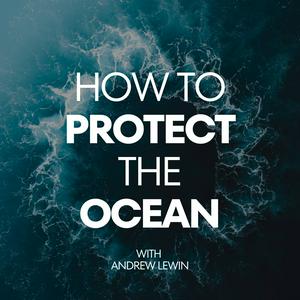
Hämta den kostnadsfria radio.se-appen
- Bokmärk stationer och podcasts
- Strömma via Wi-Fi eller Bluetooth
- Stödjer Carplay & Android Auto
- Många andra appfunktioner
Hämta den kostnadsfria radio.se-appen
- Bokmärk stationer och podcasts
- Strömma via Wi-Fi eller Bluetooth
- Stödjer Carplay & Android Auto
- Många andra appfunktioner


How To Protect The Ocean
Skanna koden,
ladda ner appen,
börja lyssna.
ladda ner appen,
börja lyssna.




